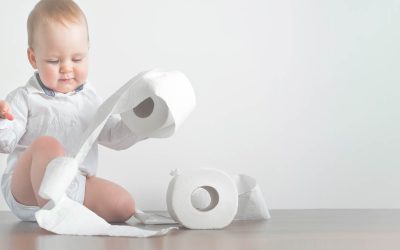Newest Craze Or Just Plain Crazy? Are DIY Baby Formulas The Best Formula For Babies?
New food crazes are always popping up, so I am not surprised when I hear of new trends with baby food. Whether breast-feeding or formula is en-vogue at the time, one thing is for sure: parents want what is best for their children.
In the past week alone, two families who recently weaned from breast-feeding asked what I think about homemade formula. Sounds simple enough really. My patients are often provided with homemade baby food their parents prepare. Why is formula any different? Is a DIY formula the best formula for babies?
The American Academy of Pediatrics and Canadian Pediatric Society are concerned that DIY infant formula may be a growing trend.
Let me start by saying: it is different. Homemade formula is not a safe substitute for breast milk or prepared commercial formulas. Governing health bodies in the United States and Canada caution that homemade formulas have been linked to malnourishment and fatal illnesses in infants. The American Academy of Pediatrics and Canadian Pediatric Society are concerned that DIY infant formula may be a growing trend.
A simple Google search yields hundreds of recipes for homemade baby formula. Typically the main ingredients can be anything from coconut milk, beef broth, raw milk and chia seeds.
As a breast-feeding mom of three, I understand the temptation. Typical formulas you buy in the grocery store list many ingredients many of us fail to pronounce let alone spell. Commercial infant formulas are not natural, and for parents looking for the most natural diet for their children, they may be uneasy providing this to their kids. So what is a parent to do when they are not able to, or choose not to breast feed exclusively? These recipes for homemade formula may appeal to parents wary of processed foods who are trying to provide their child with the healthiest early foods.
But I caution you; babies have specific nutritional needs. Commercial formulas have precise amounts of vitamins and minerals, proteins and fats to mimic breast milk as closely as possible.
But I caution you; babies have specific nutritional needs. Commercial formulas have precise amounts of vitamins and minerals, proteins and fats to mimic breast milk as closely as possible. This is science and years of research. It is not taken lightly. The big problem and major risk with homemade formulas: nutritional deficiencies, toxicity from excess vitamins, and bacterial infections that can make your child sick.
Here are the dangers:
Some ingredients are not safe:
Many homemade formula recipes call for unpasteurized cow’s milk, goat’s milk or meat broth. I caution against drinking raw milk, it may contain bacteria like E. coli, Salmonella, and Listeria, which can lead to severe or deadly infections. Babies and infants certainly don’t have the immunity to fight against these bacteria.
Contamination is possible
Even non-milk-based formula has a high risk of contamination with bacteria. Formula companies use strict regulations for the preparation, handling, and storage of commercial formulas to reduce the risk of contamination.
Nutrient imbalance
Your baby requires a very specific balance of protein, fats, carbohydrates, vitamins, and minerals. Homemade formulas are not regulated or scientifically proven to be safe. There is a risk that your baby may get too much or not enough of each particular nutrient. An improper balance of nutrients can lead to malnourishment, excessive weight gain, salt and sugar imbalances, and potentially death.
What to I advise?
- Discuss with your doc – at a very minimum, please discuss your interest in homemade formula with your doctor or paediatrician. They can review the recipe you plan to use and alert you to possible health concerns. Please be well informed.
- Keep in contact – please continue to get wellness checks for your baby. Weight gains/losses should be noted as well as any worrisome symptoms like vomiting, diarhea, developmental or behavioural concerns and fever.
- Keep it clean – all food prepared by parents require clean hands, a clean preparation area, clean utensils and clean storage containers. Bacteria are all over your kitchen and can cause serious illness.
- We know breast milk is best. But if you chose to use some formula, please stick to a commercial one. Commercial companies spend millions each year to make formula as close to breast milk as possible. This is why you see words like ‘antioxidant-rich’ and ‘DHA enhanced’. Their ingredient lists are simply not matched in a home kitchen. It is a tightly regulated industry, with safe ingredients, nutritional requirements and thorough testing.
Whether you are for or against using a homemade formula recipe for your child, I’d love to hear from you!
Quick Tips:
-
Discuss formula use with your doc
-
Ensure proper hygiene when handling formula
-
Adequate nutrients is key
-
Breast feed whenever possible











